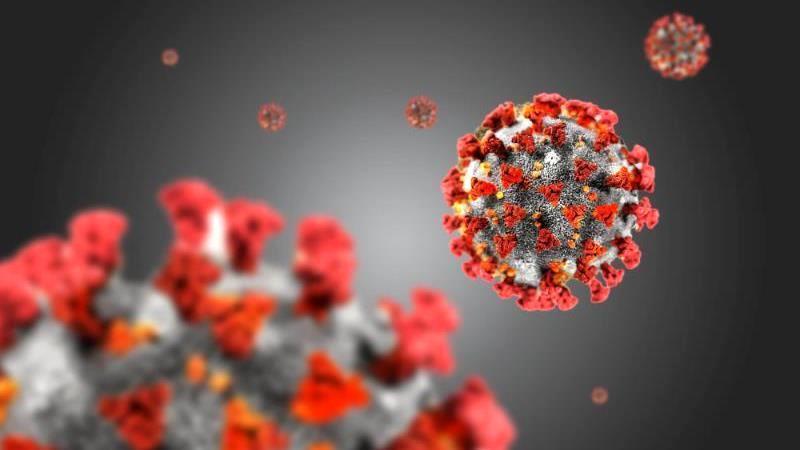

The number of Covid-19 cases in the Middle East and North Africa (Mena) region crossed 9,595,599 on 28 June, according to Worldometers data collated by MEED.
Countries in the GCC account for 23.1 per cent (2,214,919) of all regional cases, while Iran’s 3,180,092 infections continue to account for 33.1 per cent of the Mena case tally.

Since 21 June, 218,037 new cases have been reported in the 17 Mena countries tracked by MEED. The week-on-week tally is higher than the 179,680 new cases recorded in the week following 14 June.
Inoculation programmes are proceeding as cases surge in the region.
Saudi Arabia
On 23 June, Riyadh approved the use of two different Covid-19 vaccines for the first and second doses, following approval from the Saudi National Scientific Committee for Infectious Diseases.
The Health Ministry said the move is in accordance with “international scientific studies that showed the possibility of giving two doses of two different coronavirus vaccines safely and effectively”.
Saudi Arabia also confirmed last week that all 60,000 people selected to perform Hajj in 2021 must have had two doses of a coronavirus vaccine.
The Hajj & Umrah Ministry said: “Accepted Hajj applicants must receive the second dose of the Covid-19 vaccine. Applicants can visit the nearest vaccination centre without an appointment but within 48 hours of receiving the Hajj 2021 permit.”
UAE
Emirates airline is awaiting updates but tentatively plans to resume flights to and from India from 7 July, according to a response posted on its Twitter account.
Passengers travelling from India were planned to be allowed to fly to Dubai from 23 June, but the federal suspension on India-UAE flights has been extended until 21 July, according to a notice by the General Civil Aviation Authority last week.

Kuwait
A rule prohibiting unvaccinated individuals from visiting shopping malls, salons, gyms and restaurants took effect in Kuwait on 27 June. Around 400 of the Interior Ministry’s workforce has been deployed to ensure compliance with the decision.
Oman
Ahmed al-Saeedi, health minister of Oman, said the Sinovac and Sputnik vaccines have been given emergency approval, with the sultanate planning to administer at least one dose to all its major target groups before the end of August. Individuals aged 45 years and above have been eligible for free vaccinations since 20 June.
Iran
President-elect Ebrahim Raisi, who takes office in August, has promised to rapidly administer Covid-19 vaccinations to help relaunch the Iranian economy.
“Domestically produced vaccines, and if necessary those produced abroad, [will be procured] quickly so people will feel at ease and the economy will flourish,” Raisi said in a speech.
Iran started administering the locally produced Coviran Barekat jab last week, with Supreme Leader Ayatollah Ali Khamenei receiving his first dose over the weekend.

Egypt
Vaccinated travellers can enter Egypt without showing a negative PCR test on arrival, but they must present a vaccination certificate authenticated by their home country’s health ministry, with a QR code showing a digital copy of the vaccination status.
The Health Ministry said it would accept vaccinations recognised by the World Health Organisation or the Egyptian Drug Authority, including Pfizer-BioNTech, Moderna, AstraZeneca, Sinovac, Sinopharm, Sputnik-V and Johnson&Johnson.
Egypt is also preparing to open a vaccine production complex in 6 October City for the production of the Sinovac jab. Equipment costs for the Vacsera complex total about $17m and construction is estimated to cost $5.1m, according to local media reports.
Morocco
Rabat is expected to receive 650,000 doses of the Oxford-AstraZeneca vaccine as part of the Covax programme. Local media cited Moulay Mustapha Naji, a medical professor in Rabat, saying a government-backed project to manufacture vaccines is under way in Morocco, but that its timeline has yet to be confirmed.
Tunisia
Tunis is receiving shipments of Covid-19 vaccines from China and France this month. A batch of the Coronavac (Sinovac) Covid-19 vaccine arrived in Tunisia last week.
Separately, by the end of this month, France will deliver nearly 325,000 doses of the Oxford-AstraZeneca jab, French Ambassador to Tunisia André Parant said last week.
“We are convinced that this does not meet all of Tunisia's vaccine needs, but it is a valuable gesture that will reinforce the country's Covid-19 vaccination efforts,” he said.

You might also like...

Iran-US talks see earnest engagement
27 February 2026

Kuwait receives bids for $400m Subiya utilities plant works
27 February 2026

A partner’s perspective on working with Sharakat
27 February 2026

Egypt’s Obelisk equity move merits attention
27 February 2026
A MEED Subscription...
Subscribe or upgrade your current MEED.com package to support your strategic planning with the MENA region’s best source of business information. Proceed to our online shop below to find out more about the features in each package.
Take advantage of our introductory offers below for new subscribers and purchase your access today! If you are an existing client, please reach out to your account manager.






